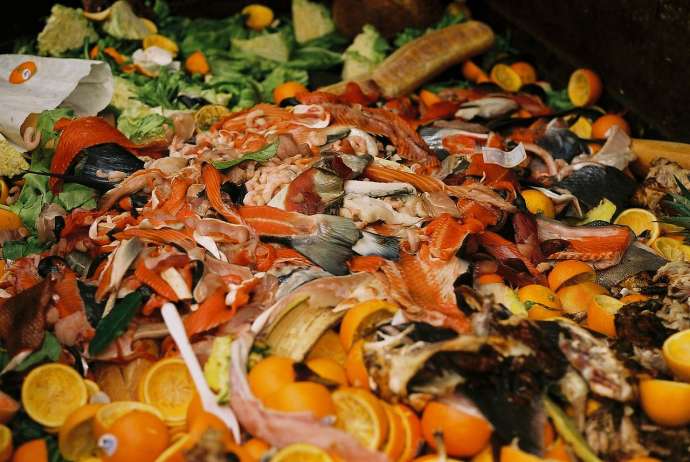Časoris is an online newspaper aimed at children. Each week we’ll take an article and post it here as a Slovene-English dual text.
Ne meči hrane v smeti
Don't throw food in the trash
Written by Romana Dobnikar Šeruga translated by JL Flanner & G Translate
Na mednarodni dan ozaveščanja o izgubah hrane in odpadni hrani so mediji poročali o tem, koliko hrane vržemo v smeti, in opozarjali, kako narobe je to. Vendar en dan na leto ni dovolj! O tej temi bi morali govoriti in razmišljati vsak dan.
On International Food Loss and Food Waste Awareness Day, the media reported on how much food we throw in the trash and warned how wrong it was. But one day a year is not enough! We should talk and think about this topic every day.
Vsak Slovenec na leto zavrže kar 68 kilogramov hrane v smeti. Preračunajmo: to je 20 dekagramov ali skoraj štiri žemljice na dan. Ogromno hrane se izgubi že na poti do potrošnika, nato pa konča v smeti, skupaj z neprodano hrano iz trgovin in ostanki hrane iz gostiln, šol in družinskih miz.
Every Slovene throws as much as 68 kilograms of food a year in the trash. Let’s recalculate: that’s 20 decagrams, or almost four buns a day. A huge amount of food is lost already on the way to the consumer, it then ends up in the trash, along with unsold food from stores and leftover food from restaurant, school and family tables.
Združeni narodi so si zastavili cilj, da v desetih letih zmanjšamo količino odpadne hrane za polovico in hkrati odpravimo lakoto v svetu. Kako lahko to dosežemo?
The United Nations has set itself the goal of halving the amount of food waste in ten years while eliminating world hunger. How can we achieve this?
Viške hrane podarimo tistim, ki so še lačni. Nekateri živilski trgovci vsak večer ostanke sveže neprodane hrane predajo predstavnikom različnih človekoljubnih organizacij, da jih razdelijo tistim, ki hrane ne morejo kupiti. To je lep zgled. Toda iz trgovin pride samo deset odstotkov ostankov hrane. Najbolj potratno s hrano ravnamo v gospodinjstvih. Mi sami smo krivi za več kot polovico vse zavržene hrane, opozarja novinarka Dela Maja Prijatelj Videmšek.
We give surplus food to those who are still hungry. Some food retailers hand over leftovers of fresh unsold food to representatives of various humanitarian organisations every night to distribute to those who cannot buy food. This is a good example. But only ten percent of leftover food comes from stores. The most food waste is in households. We ourselves are to blame for more than half of all discarded food, warns Delo journalist Maja Prijatelj Videmšek.
Zato si moramo prizadevati, da kupimo in si pripravimo le toliko hrane, kolikor jo lahko pojemo. Ostanke shranimo in pojemo kasneje. Viške hrane pa lahko podarimo naprej. Zveza prijateljev mladine Slovenije vsako leto razpiše natečaj Evropa v šoli. Naslov letošnjega se glasi Če kruhek pade ti na tla, poberi in poljubi ga.
Therefore, we should strive to buy and prepare only as much food as we can eat. The leftovers are stored and eaten later. Surplus food can be donated. Every year, the Association of Friends of the Youth of Slovenia announces the Europe at School competition. This year's title is If the bread falls to the ground, pick it up and kiss it.
Read more stories and improve your Slovene at Časoris, while all our dual texts can be found here.







